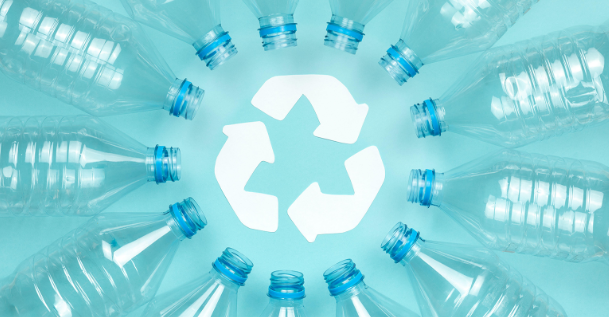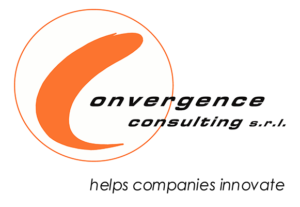Convergence Consulting
Convergence Consulting is a global consulting firm that helps businesses improve their sustainability practices. The company has been working on the design for recycling for several years, and industry leaders and environmental organizations have recognized its efforts. They have been promoting the idea that design for recycling is essential for a greener future.
Design for recycling refers to the process of designing products and packaging that can be easily recycled. This means that the materials used in the product must be recyclable, and the design should be such that the product can be easily disassembled and separated into its component parts for recycling. By designing products for recycling, businesses can reduce waste and conserve natural resources.
 One of the main reasons why design for recycling is so important now is that we are facing a global waste crisis. According to the World Bank, global waste is expected to increase by 70% by 2050, significantly impacting the environment. Waste disposal is becoming increasingly challenging, and recycling is one of the most effective ways to reduce waste and preserve natural resources.
One of the main reasons why design for recycling is so important now is that we are facing a global waste crisis. According to the World Bank, global waste is expected to increase by 70% by 2050, significantly impacting the environment. Waste disposal is becoming increasingly challenging, and recycling is one of the most effective ways to reduce waste and preserve natural resources.
Design for recycling is also essential because it helps businesses reduce their environmental impact. By designing recyclable products, businesses can reduce the amount of waste they generate and conserve natural resources. They can also reduce their carbon fotprint using recycled materials instead of virgin materials.
Convergence Consulting has been helping businesses design products for recycling by providing them with the necessary expertise and knowledge. They have a team of experts who can advise businesses on the best materials and the most effective designs for recycling. They also train businesses on how to incorporate design for recycling into their product development processes.
One of the ways that Convergence Consulting has been promoting design for recycling is by working with businesses to develop sustainable packaging solutions. Packaging is a significant contributor to waste, and by designing packaging that can be easily recycled, businesses can reduce their environmental impact. Convergence Consulting has been working with businesses to develop sustainable packaging solutions that are both practical and environmentally friendly.
Convergence Consulting has also been promoting the concept of the circular economy, an economic system based on the principles of reducing, reusing, and recycling. The circular economy is an alternative to the traditional linear economy, where products are manufactured, used, and disposed of. In a circular economy, products are designed to be reused or recycled, and waste is minimized.
Design for recycling is an essential component of the circular economy, and Convergence Consulting has been helping businesses adopt this approach. They have been working with businesses to develop closed-loop systems where products and materials are recycled and reused in new products. By adopting the circular economy approach, businesses can reduce their environmental impact and conserve natural resources.
Another way that Convergence Consulting has been promoting design for recycling is by working with businesses to develop sustainable supply chains. A sustainable supply chain is environmentally friendly, socially responsible, and economically viable. By working with suppliers and manufacturers, Convergence Consulting has been helping businesses develop sustainable supply chains based on reduction, reuse, and recycling principles.
Example of our work in design for recycling
One example of Convergence Consulting’s work in design for recycling is its partnership with a leading food packaging company. The packaging company was looking to reduce its products’ environmental impact and enlisted Convergence Consulting’s help to develop a more sustainable solution.
Convergence Consulting conducted a detailed analysis of the company’s products and identified areas where improvements could be made. They worked with the company’s design team to develop new, more easily recyclable packaging that used less material.

The new packaging also had a more visually appealing design, which helped increase sales and customer satisfaction.
Through this partnership, the food packaging company reduced its environmental impact while improving its products’ functionality and aesthetics. The new packaging was well-received by customers, and the company saw increased sales and customer loyalty.
Another example of Convergence Consulting’s work in design for recycling is its partnership with a leading electronics manufacturer. The electronics industry is known for producing a large amount of waste, and Convergence Consulting was brought in to help the manufacturer reduce their environmental impact.
Convergence Consulting worked with the manufacturer to evaluate their products and identify areas where design changes could be made to make them more recyclable. They also helped the manufacturer develop a recycling program and guided communication of their sustainability efforts to customers.
As a result of this partnership, the electronics manufacturer reduced their waste and improved their sustainability performance. They also saw increased customer loyalty as customers became more aware of their sustainability efforts.
Conclusion
Design for recycling is an essential practice for companies looking to reduce their environmental impact and conserve resources. Convergence Consulting is a leading consulting firm specializing in sustainability and has developed a range of services to help companies adopt this practice. Through partnerships with leading companies in the food packaging and electronics industries, Convergence Consulting has demonstrated the value of design for recycling and the positive impact it can have on the environment and business performance. As the world continues to focus on sustainability, design for recycling will become even more critical, and companies that adopt this practice will be well-positioned to succeed.


